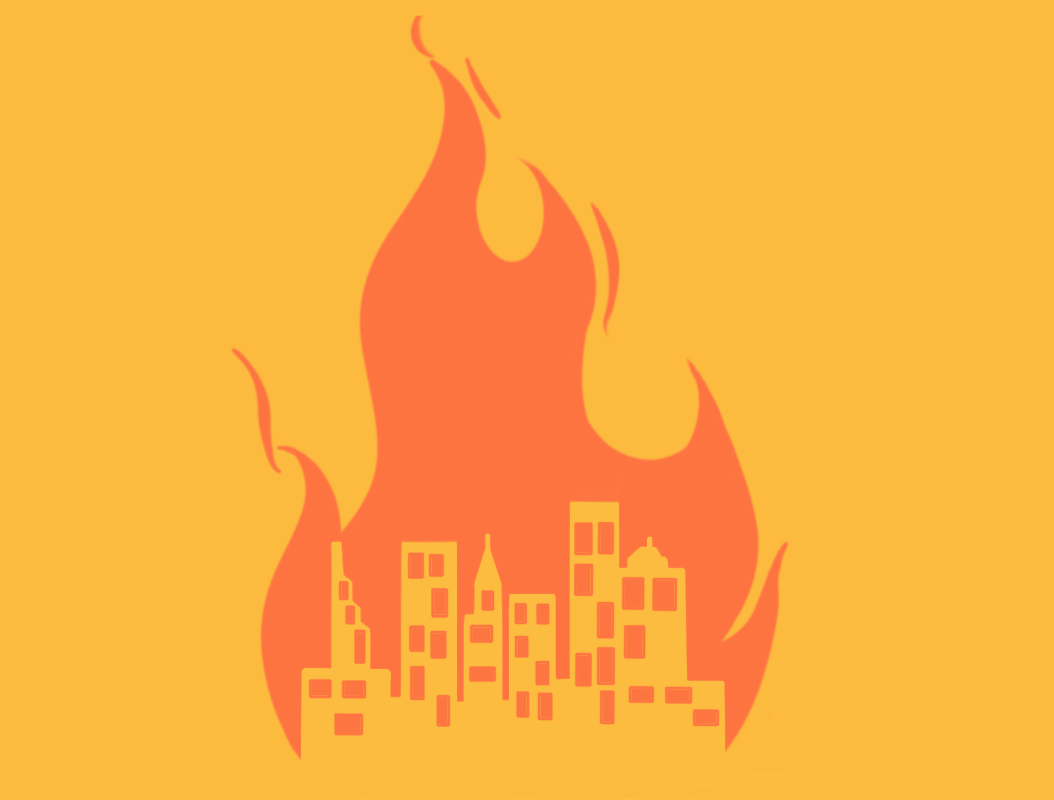Opinion | We need to adapt to an already changed climate


Hurricane Ida did not shock me.
Sure, as I read about displaced families and destroyed homes, I was saddened and worried for the people of Louisiana, but I was not surprised. After coverage of one natural disaster ends, it is replaced by the next tragedy. Wildfires continue to burn in California. Sea levels rise, overtaking homes by shorelines. Temperatures rise to unprecedented highs and the lengths of droughts extend. More extreme natural disasters are the new normal.
We often talk about global warming as if it is a looming threat. Politicians discuss lowering our carbon emissions in the future to save Earth from changing — as if the world as we know it will cease to exist if we don’t change our behavior.
But if you look around at the ever-escalating reactions in nature, it’s clear that the world has already changed. The globe has already warmed. It is time we accept this reality and put a greater emphasis on adapting to the already changing climate.
The changing environment may not seem like a big deal. It has not affected my life immensely. I’m lucky enough to have lived most of my life inland, in an area full of clean air and in a structurally sound house. But this is not the case for many people in the United States and around the world. Many people in our society, who are already at a societal disadvantage or live in an area prone to natural disasters, are already feeling the implications of global warming.
People who are of lower socioeconomic status are more likely to live in areas with higher concentrations of air pollutants and lack air conditioning in their homes. This means that when global temperatures rise and heat the polluted air, residents are susceptible to developing respiratory health issues. Cities such as Los Angeles, Cincinnati and Pittsburgh — which have dense populations — have unhealthy levels of air pollution as deemed by the Environmental Protection Agency. As Earth continues to heat, people who live in areas with high air pollution and limited access to cool places will face more health struggles.
This issue of inadequately-built homes also exacerbates the effects of flooding. Often, when these unsound homes are flooded, residents do not have the means to repair their destroyed homes, leaving families homeless. Many residents of these houses put their lives in danger since they do not have the means to evacuate during the storm.
Hurricane Ida is a prime example of this issue. Those who have the means to buy a generator, stay in a hotel or travel to a new location were able to ensure their safety. Yet, many residents of New Orleans do not have the financial means or an automobile to evacuate. Leaving in the wake of a natural disaster is a privilege rather than the norm. Instead, we should focus on establishing evacuation methods that allow everyone to weather the storm safely.
Worldwide, global warming is creating a new group of displaced people — climate refugees. Due to rising shorelines and storm surges, millions of people likely won’t have a home in the coming years. In fact, in February, many residents on the coasts of Nicaragua were forced to migrate inland due to Hurricane Eta and Iota.
The time to adapt to climate change is now. The status quo of how we build and sustain our communities is no longer feasible. We need government support to build safe housing in areas that are not prone to flooding. We need better regulations on air quality, affordable housing in safe locations as well as more effective and efficient mass transportation systems. It shouldn’t be a luxury to live in a place that’s safe, structurally sound and has clean air.
Accepting and adapting to a human-provoked environmental change is not a novel idea — countries around the globe have already started altering their actions. In France, after both private enterprises and the government worked together to invest in better ventilation and air conditioning throughout the country’s infrastructure, the number of deaths after heat waves decreased over the past 10 years.
Bangladesh lays at a low elevation and is faced with sea levels rising at an extremely rapid rate. To protect its people, the Bangladeshi government implemented new measures, such as a country-wide early warning system that will signal people to evacuate or reside in their disaster-proof shelters. This warning system decreased the mortality rate of storms and floods dramatically.
Millions of people are already feeling the effects of climate change. If we acknowledge that climate change is here, instead of some future possibility, we can move forward in adapting to this new environment.
We still need to fund and support measures that limit our carbon footprint. We should still promote preventing further change, but we need to adapt to higher sea levels, hotter temperatures and more natural disasters.
The climate has changed. So let’s change with it.
Talia Spillerman writes about anything and everything. Write to her at tns26@pitt.edu.
Recent Posts
‘He’s off to a much faster and better start’: Republicans reflect the second Trump administration’s first two months
Since Inauguration Day Trump’s second term has caused division amongst young Americans. Despite these controversies,…
Who Asked? // Why do we accept bad treatment from people?
This installment of Who Asked? by staff writer Brynn Murawski attempts to untangle the complicated…
What, Like It’s Hard? // Lean on your people
Contributing editor Livia LaMarca talks about leaning on your support networks and gives advice on…
Note to Self // Hot Girl Summer
In the sixth edition of Note to Self, Morgan Arlia talks about how she is…
A Good Hill to Die On // Down to Date and Time
In the latest version of “A Good Hill to Die On,” staff writer Sierra O’Neil…
‘Dress for Success: Closet to Career’ alleviates the stress of building a professional wardrobe
As the end of the spring semester rapidly approaches, many Pitt students find themselves in…

